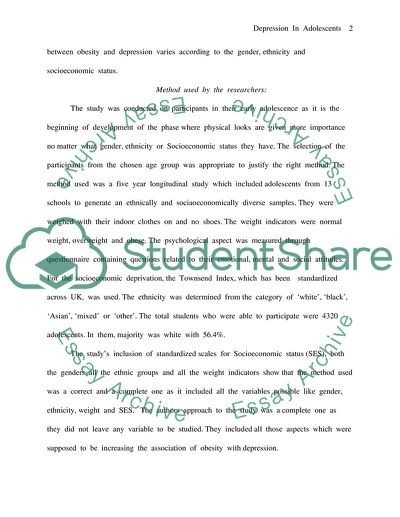Cite this document
(“Depression and Obesity: A result of negative mental association Essay”, n.d.)
Depression and Obesity: A result of negative mental association Essay. Retrieved from https://studentshare.org/health-sciences-medicine/1557641-depression-and-obesity-a-result-of-negative-mental-association
Depression and Obesity: A result of negative mental association Essay. Retrieved from https://studentshare.org/health-sciences-medicine/1557641-depression-and-obesity-a-result-of-negative-mental-association
(Depression and Obesity: A Result of Negative Mental Association Essay)
Depression and Obesity: A Result of Negative Mental Association Essay. https://studentshare.org/health-sciences-medicine/1557641-depression-and-obesity-a-result-of-negative-mental-association.
Depression and Obesity: A Result of Negative Mental Association Essay. https://studentshare.org/health-sciences-medicine/1557641-depression-and-obesity-a-result-of-negative-mental-association.
“Depression and Obesity: A Result of Negative Mental Association Essay”, n.d. https://studentshare.org/health-sciences-medicine/1557641-depression-and-obesity-a-result-of-negative-mental-association.


